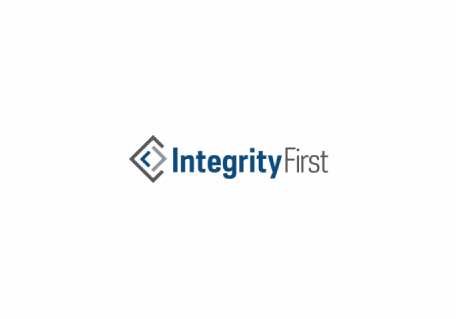Integrity isn’t just a “nice-to-have” trait; it’s the bedrock of a responsible workforce. When you hire someone who’s ethically aligned with your organization, you’re more likely to see loyalty, transparency, and respect across the board.
That’s why many HR professionals and recruiters use integrity questionnaires to screen candidates before extending a job offer.
What Is an Integrity Assessment?
An integrity assessment is a short test measuring honesty and ethical decision-making.
While some questions are direct (e.g., “Have you ever stolen from the workplace?”), others are indirect or situational.
Together, they reveal a candidate’s overall stance on honesty, rule-following, and accountability.
- Primary Goal: Pinpoint applicants likely to uphold your values and avoid costly, unethical behaviors.
- Key Benefit: Early detection of red flags like theft, rule-bending, or a casual attitude toward wrongdoing.
Expanded List of Sample Integrity Questions
Below you’ll find a variety of sample questions split into three categories: Overt Honesty Checks, Personality-Based (Covert) Items, and Situational Dilemmas. Tailor them to match your industry and specific job roles.
1. Overt Honesty Checks
- “Do you think it’s acceptable to take office supplies home if the company has plenty?”
- Why ask? Detects how the candidate rationalizes “small” thefts.
- “How would you handle a situation where you accidentally received extra change at a store?”
- Why ask? Gauges everyday honesty and willingness to correct a mistake.
- “Have you ever witnessed a coworker stealing or violating company policy? How did you respond?”
- Why ask? Tests whether the candidate stood up for integrity in a real-world scenario.
- “Would you ever lie to a client if it benefited the company in the short term?”
- Why ask? Reveals if a candidate values ethical practices over short-term gains.
- “Should a supervisor always be told about a significant mistake, even if it might cost your job?”
- Why ask? Determines a person’s commitment to transparency under pressure.
2. Personality-Based (Covert) Items
- “Keeping secrets from management is acceptable if it doesn’t directly harm anyone.” (Agree/Disagree)
- Why ask? Uncovers comfort level with withholding information.
- “I work best when I have clear rules and expectations.” (Agree/Disagree)
- Why ask? Provides insight into how well they might follow guidelines.
- “It’s frustrating when rules get in the way of getting things done quickly.” (Agree/Disagree)
- Why ask? Evaluates whether efficiency or ethics might take priority.
- “Some people are naturally dishonest, and it’s hard to trust them.” (Agree/Disagree)
- Why ask? Explores the candidate’s worldview—are they overly suspicious or generally trusting?
- “My friends would describe me as someone who always does the right thing, even if it’s not convenient.” (Agree/Disagree)
- Why ask? Assesses self-perception around moral responsibility.
- “If rules are outdated, it’s okay to ignore them.” (Agree/Disagree)
- Why ask? Checks if a candidate believes in reforming vs. bypassing rules they view as obsolete.
3. Situational Dilemmas (Hypothetical Scenarios)
- “A coworker confides that they plan to fake a doctor’s note to get paid sick leave. What would you do?”
- Why ask? Measures how a candidate might intervene (or not) in a clear ethical breach.
- “You accidentally break a piece of company equipment, but no one sees it happen. What do you do?”
- Why ask? Tests personal accountability in a ‘no one will ever know’ scenario.
- “If your boss instructed you to do something slightly dishonest (e.g., omit details in a report), would you comply?”
- Why ask? Reveals whether the candidate is willing to confront unethical leadership.
- “You notice a supplier routinely overcharging your company. Reporting it might create tension. Do you speak up?”
- Why ask? Shows willingness to protect the company’s interests, even under conflict.
- “Imagine you suspect a team member is falsifying data to meet quotas. How do you proceed?”
- Why ask? Investigates the candidate’s approach to internal fraud or rule-breaking.
- “Your friend is applying for a job in your department, but you realize they’re not fully qualified. They ask you to overlook their shortcomings. What do you do?”
- Why ask? Tests impartiality and honesty in a scenario involving personal relationships.
Best Practices for Implementation
- Use Varied Question Types: Mix overt honesty checks with subtle (covert) questions for well-rounded insights.
- Keep It Relevant: Adapt questions to typical ethical challenges in your industry.
- Utilize Scale Responses: Offer options from “Strongly Agree” to “Strongly Disagree” for nuanced results.
- Include Consistency Checks: Rephrase certain questions to catch contradictory answers.
- Follow Legal Guidelines: Ensure all questions are job-related and non-discriminatory.
Why Employers Choose IntegrityFirst Tests
Looking to streamline the process? IntegrityFirst Tests offers:
- Scientifically Validated Assessments: Backed by proven research to accurately gauge honesty and ethical tendencies.
- Fast, Data-Driven Insights: Immediate scoring and clear-cut integrity ratings help you make confident hiring decisions.
- Seamless Integration: Easily add our integrity questionnaire into your Applicant Tracking System or online application.
- Expert Support: Our team can help interpret results and advise on next steps.
Ready to Strengthen Your Hiring Process?
Don’t risk costly mistakes from a bad hire. Integrate a robust integrity assessment into your screening and ensure each new team member aligns with your ethical standards.
Discover how IntegrityFirst can help you protect your workplace—and your bottom line—by identifying honest, dependable hires right from the start.
Bottom Line: A well-structured integrity assessment questionnaire can be a game-changer in hiring.
By blending direct honesty checks, covert personality items, and realistic situational dilemmas, you’ll get a clearer picture of which candidates truly value integrity—and which ones might pose a risk.





